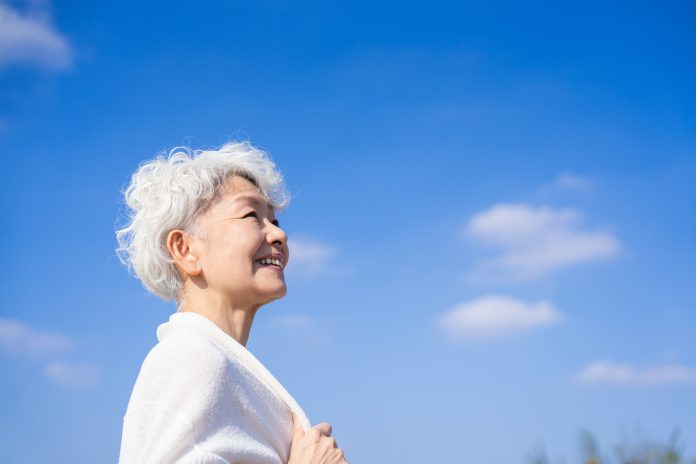The International Longevity Centre is the UK’s leading authority on the impact of healthy ageing. Here, the ILC’s Emily Evans explains how research can enable Japan’s citizens to live longer in good health and what others can learn from this
In the world of ageing research, significant funds are being invested, some with the tantalising promise of immortality. However, the International Longevity Centre UK leaves any attempts to reverse the ageing process to others and focuses on conducting evidence-based research into healthy ageing to pioneer policy solutions so everyone can realise the benefits of longevity.
The ILC-UK was founded by Baroness Sally Greengross in 1997 after she was inspired by Robert Butler in the US and Shigeo Morioka in Japan, who established the first ILCs in 1990. Together, the three were instrumental in setting up the ILC Global Alliance – now encompassing 16 organisations globally, with the aim of helping societies navigate the challenges of population ageing and reap the opportunities of longevity.
Ageing populations
A lot has changed since the 1990s. Globally, the population has surged from 5.3 billion to over 8 billion. However, the annual growth rate has dwindled from 1.77% to 0.88%. Japan stands out, having one of the most rapidly ageing populations, with a median age exceeding 48.5 years. To provide perspective, the UK’s median age is 39, China’s 37.9, and India’s 27.6.
While people around the world are living longer, this does not necessarily mean healthier lives. The ILC’s Healthy Ageing and Prevention Index ranks 121 countries against six indicators: life span, health span, work span, income, environmental performance, and happiness. Japan clinches the top position for life expectancy (84.3 years) and healthy life expectancy, averaging 74.1 years.
Yet, its ranking is pulled down to 17th due to other metrics. This indicates a need for policymakers to delve deeper, as healthy ageing is not merely about longevity but the quality of those additional years.
Japan’s universal health coverage
Japan’s health system is characterized by a universal insurance scheme allowing individuals to select their preferred clinics or hospitals. There is currently minimal primary or community care in Japan and no system of general practitioners (GPs). Instead, people head straight to a specialist operating at a clinic.
However, there is growing apprehension about the system’s sustainability due to escalating medical costs from an ageing populace and stagnated economic growth. In 2015, Japan recognised that to keep its population healthy and productive for longer, there was an urgent need to rebuild a sustainable healthcare system that could better respond to demographic change.
A paradigm shift to a new system was proposed in the report Japan Vision: Health Care 2035 with the goal “to build a sustainable, responsive and equitable system that delivers better health outcomes for all”. And to move Japan’s health system from “inputs to outcomes, from quantity to quality and efficiency, from cure to care, and from specialization to integrated approaches across all sectors”. (1)
Japan’s approach to dementia
In Japan, over 4.6 million people are living with dementia, with the total expected to soar to about 7.3 million people – or one in five Japanese aged 65 or over – by 2025. In 2019, Japan launched a new national strategy aiming to ensure people can live well with dementia. The strategy was co-produced with people with dementia and their families and promotes co-existence and prevention.
Japan’s approach to dementia, which involves the fusing of data, technology, and interactive human care, makes the country an interesting pioneer. But while ahead of other countries in many respects, Japan can still learn lessons from elsewhere. For example, ongoing research by the Alzheimer’s Society-funded PriDem project led by Newcastle University in the UK and co-produced with people living with dementia, suggests shifting the coordination of care from secondary to primary care services. This results in more personalised and timely post-diagnostic support, which could be up to 40% cheaper than specialist care. (2)
Moving the needle on immunisation in Japan
Beyond access to clean water and sanitation, immunisation is the most effective way to prevent dozens of life-changing diseases. Yet, for a wealthy and ageing country, Japan remains an outlier in terms of attitudes to adult vaccination. Pre-COVID surveys show that just 4.7% of adults in Japan felt that vaccines were important, 25.1% agreed they were safe, and 9.9% felt they were effective.
Despite grappling with a flu epidemic in 2019, Japan is still struggling to significantly raise vaccination uptake rates among people aged 65 and over. However, the juxtaposition of COVID-19 and the rescheduled Tokyo Olympics presented new opportunities to increase vaccination uptake in Japan.
In 2022, the ILC-UK and Stripe Partners tackled the question of vaccine hesitancy by conducting ethnographic research and face-to-face interviews with older adults and health professionals in urban and rural Japan to better understand the barriers to vaccination. These barriers included practical obstacles, a lack of awareness, a failure to take vaccine-preventable diseases seriously and vaccine hesitancy. To address these issues, the Moving the Needle report presents innovative blueprints, including targeted communication strategies, testing local vaccine events, and overhauling the vaccine booking system.
Conclusion
While older Japanese citizens are proactive about their health and independence, a more strategic, holistic, and adaptable evidence-based approach to health policy in Japan will be crucial in ensuring healthier and more productive longer lives.
References
- World Health Organization, Japan health system review (who.int)
- World Alzheimer Report 2016 – Summary Sheet (alzint.org)











